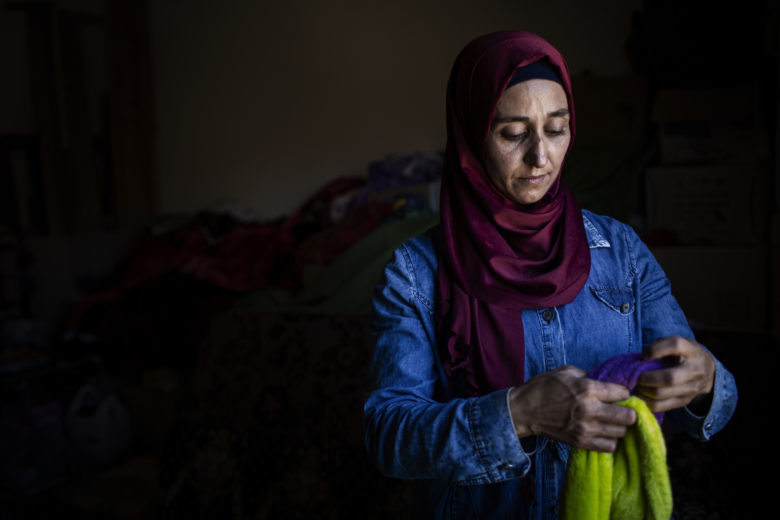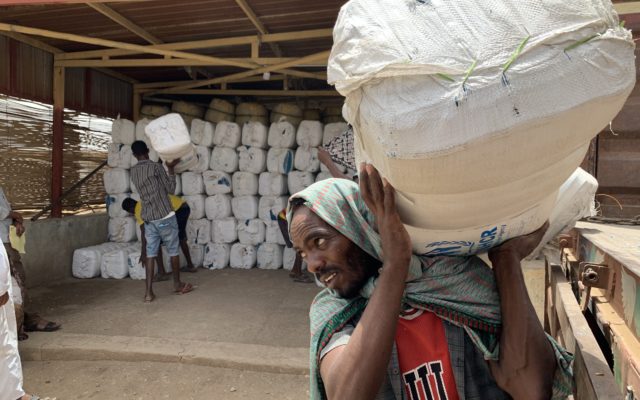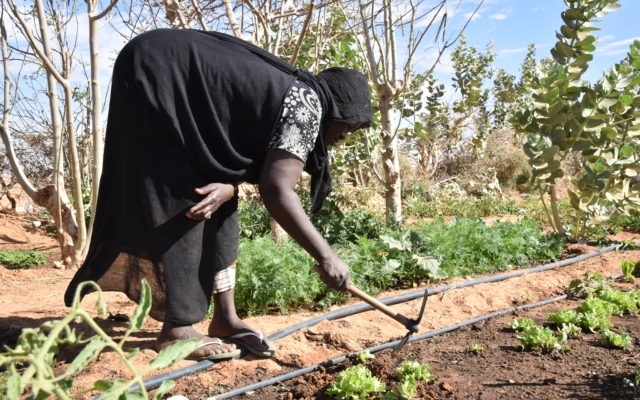Search beyond the headlines: Awatef
This winter, search beyond the headlines and get to know displaced people like Awatef from Syria.
© UNHCR/Diego Ibarra Sanchez
2 December 2021
Refugees aren’t headlines. Refugees are individuals with histories, families, memories, hopes and fears.
All of this and more holds true for 39-year-old Awatef from Syria. Originally from the outskirts of Damascus, she was forced to flee in 2005. Now based in Lebanon, Awatef goes door-to-door raising awareness about recycling as part of her volunteering job with UNHCR, for which she receives a small stipend.
Awatef lives in Majdel Anjar in eastern Lebanon’s Beqaa Valley and has been in the country for over 15 years. Outside of her work with UNHCR, Awatef takes care of her disabled husband, Mohammed, and also works as a babysitter.

Awatef lives in Majdel Anjar in eastern Lebanon’s Beqaa Valley and has lived in the country since 2005.
Lebanon hosts more than 850,000 Syrian refugees, the majority of whom have sought refuge since 2011, when conflict began in Syria. Their arrival has significantly increased the country’s population and represents the largest concentration of refugees per capita in the world. More than a third live in the Beqaa Valley, close to the Syrian border.
As temperatures plummet, displaced families urgently need your help.
Join UNHCR Goodwill Ambassador @davemorrissey64 in supporting those who have been forced to flee 👉 https://t.co/q34MzVesqi #GivingTuesday pic.twitter.com/TU8fYQ6et1
— UK for UNHCR (@UNRefugeesUK) November 30, 2021
Lately, Lebanon’s economic crisis has had a disastrous impact on both Lebanese families and Syrian refugees in the country.
According to a recent vulnerability assessment, 90 per cent of Syrian refugees are currently living in extreme poverty and are unable to cover the full cost of daily essentials like food, medicine or fuel for heating and cooking.
In addition, 60 per cent of Syrian families in Lebanon are now living in dangerous, overcrowded or substandard accommodation. Over the next couple of months, as temperatures in Lebanon are expected to plummet below zero, many displaced families have little protection from the freezing temperatures, rain and snow.
UNHCR is on the ground providing vital winter essentials such as shelter, thermal blankets, fuel and emergency winter payments to ensure families can buy what they need most. But we urgently need your help.
Please donate today to help displaced families survive.
For more information and data, please visit the UNHCR website.




